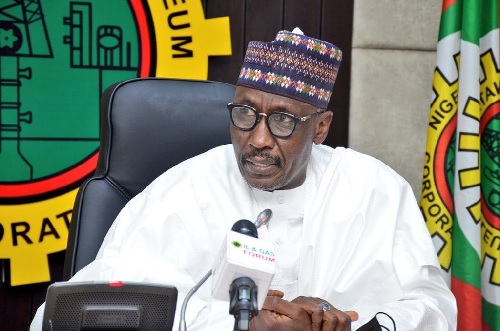The terrifying and shameful disclosure by Mr. Mele Kyari, the
Group Chief Executive Officer (GCEO), Nigerian National Petroleum Corporation
(NNPC) Limited, that Nigeria loses a stunning amount of $1.9 billion month to
month to unrefined petroleum burglary puts a ton of question marks on how the
oil-subordinate economy is being controlled.
Kyari communicated his anxiety when a designation of an enemy
of oil robbery group drove by Timipre Sylva, Minister of State for Petroleum
Resources, visited the legislative leader of Delta State, Ifeanyi Okowa, at the
public authority house, Asaba. He said Nigeria couldn’t meet its OPEC’s
standard of 1.99 million barrels each day with its ongoing creation level of
1.4 million barrels each day because of the exercises of monetary saboteurs.
Yet, our anxiety originates from the way that Kyari’s
grievance is coming after comparative disclosures have more than once been
made, transforming the situation into a parody of blunders; practically turning
into a vacuous platitude from a messed-up record. What preventive security
components against oil robbery have been conveyed by our unrefined petroleum
administrators?
A couple of months prior, the General Overseer of the
Redeemed Christian Church of God (RCCG), Pastor Enoch Adeboye, discredited the
repetitive unrefined petroleum burglary in the country. He cautioned that more
than 90% of Nigeria’s income from raw petroleum deals was utilized to outfit
interests gathering on obligation and thusly, the country could fail in the event
that the pattern was not checked.
With devoted concern, he had posed the upsetting inquiries:
“Who is taking the oil? Where is the cash going? What is it that they
believe should do with the cash? Who are the unfamiliar countries purchasing
this taken oil? What number of these countries of the world are your
companions?”
Additionally, Austin Avuru, establishing MD/CEO of Seplat
Energy and Executive Chairman of AA Holdings, cautioned that Nigeria’s oil
creation had arrived at a crisis status. He expressed that 80% of creation from
certain wells didn’t come to the terminals because of oil robbery. At a point,
Nigeria’s oil income experienced a further blow as the 180,000 BPD Trans-Niger
pipeline dried up because of oil burglary.
Likewise stressed over the singing situation, a main
geologist and distributor of Africa Oil and Gas Report, Toyin Akinosho,
highlighted the way that the greater part of unrefined being taken suggested
that the expense of raw petroleum creation remained preposterously high.
We are, in this manner, likewise worried that no tenable and
persuading answers have been proffered by the specialists to the upsetting
inquiries in regards to oil robbery. Subsequently the stealing binge proceeds!
As per Gbenga Komolafe, the top of the Nigerian Upstream
Petroleum Regulatory Commission (NUPRC), Nigeria lost a faltering $1 billion in
income in the principal quarter of 2022 because of raw petroleum burglary. The
burglary of unrefined petroleum developed from 103,000 barrels each day in 2021
to around 108,000 barrels each day typical in the main quarter of 2022.
It is disheartening that Nigeria has not had the option to
receive the greatest reward from the ascent in raw petroleum costs occasioned
by the Russia-Ukraine war. With the worldwide oil value tumbling to $95 a
barrel over plans to reestablish Iran’s atomic arrangement, the Nigerian
government should be considered responsible for its powerlessness to bring to
book the culprits of the financial shame, bringing about such a humongous misfortune
to the public exchequer.
The Managing Director of Chevron Nigeria/Mid Africa Business
Unit, Richard Kennedy, has depicted oil burglary as a “coordinated
wrongdoing”. The exit from the unpleasant oil trick – the deplorable
financial damage – is to figure out those behind the wrongdoing and let justice
takes its course.

Oh my God! Who will bail us out of this distroyers! A whooping $1.9b on a monthly basis, are you kidding me?